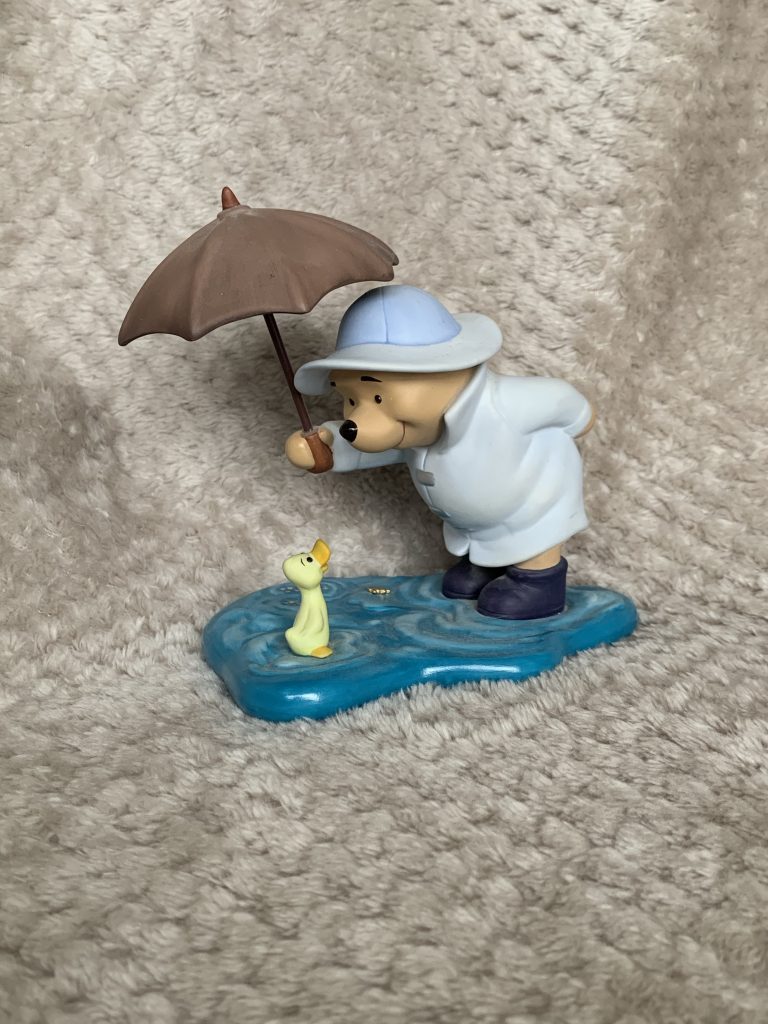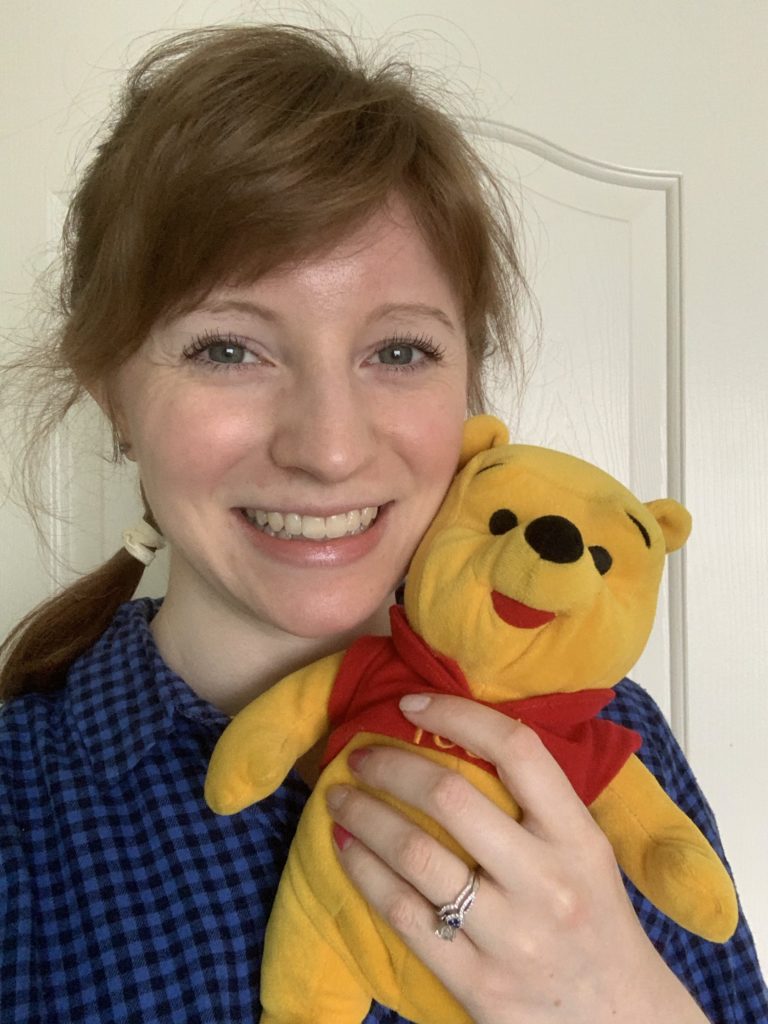It probably comes as no surprise that Winnie-the-Pooh was my favorite as a child. The paraphernalia I’ve retained is not even a quarter of the Winnie-the-Pooh dolls, clothes, and accessories that filled my toddler room. (My mom even stenciled bears holding balloons on my walls. I came by my obsession honestly.) In my first ever trip to the movie theater, my mom and I watched The Tigger Movie. Even now, I’ve saved every Winnie the Pooh movie on Disney Plus so I can watch it on days I feel low. However, my childhood fangirling surrounded the Disney-fied interpretations of A. A. Milne’s classics. So, how do the original Winnie-the-Pooh and The House at Pooh Corner stack up in terms of children’s literature?
I First Read Winnie-the-Pooh

While I read all the Disney picture books ever published in the early 2000s as a child, I didn’t obtain a copy of the original A. A. Milne tales until the past year or so. In a panic to avoid the stress of wedding planning and office managing, I grabbed Winnie-the-Pooh and plopped on the couch to read. I proceeded to laugh so hard and so often that my dad had to look up from his solitaire game every few minutes. As much as I love every Disney adaptation of Winnie-the-Pooh (minus that My Friends Tigger and Pooh show… they screwed up that one,) A. A. Milne’s books captivated me just as completely.
The characters in Milne’s books are just so charmingly real, despite being animals. I laugh hysterically at misspelled words and hidden moments of arrogance because I recognize the misunderstandings from my daily life. While the books perfectly capture the imagination of a child, they also reflect our reality as adults. And don’t get me started on the series’ ending! I think The House at Pooh Corner even beats out The Great Gatsby as the best last line of all time!
What About Faith?

Well, Winnie-the-Pooh and The House at Pooh Corner definitely aren’t expressly Christian. There are no stories paralleling Biblical events. Yet, the books feel pure. Childhood innocence oozes from the pages. The stories teach problem solving, friendship, and how to tell a good story. Yet, I think Milne’s most powerful message is that of compassion. The animals are accepted as they are in childlike love. Even those who frequently carry disdain in their back pocket (ahem… Rabbit) quickly forgive inconveniences and learn to embrace the qualities that make each character unique. Concern for others trumps selfishness every time. The interactions between the characters lead everyone to grow into more caring and generous members of the Hundred Acre Wood.
I believe we all can agree that these behaviors are worth learning and sharing. Jesus certainly exemplifies these traits perfected. So, despite Christopher Robin not waving a magic Bible in the air every time a problem arises, the books reflect Christian concepts. I feel no shame in continuing to claim Winnie-the-Pooh and The House at Pooh Corner as a pinnacle of children’s literature.
